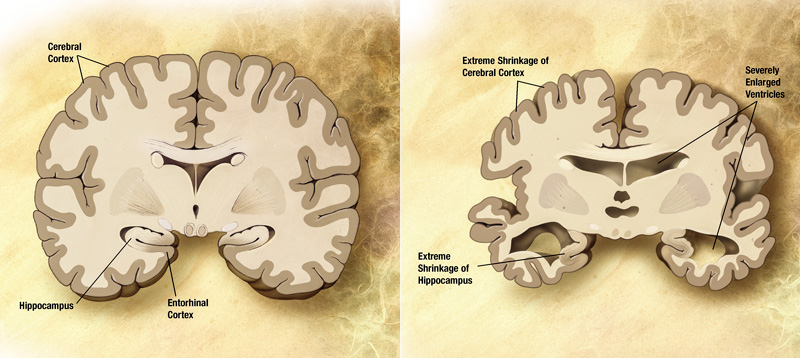
MYRTLE BEACH – “Caregiving is complicated. It changes your life,” Melanie Bunn told a group of about 50 family members and caregivers for people with Alzheimer’s disease or other forms of dementia.
She spoke at HealthFinders recently during a program to help caregivers understand people with dementia. Bunn is a dementia training specialist and Alzheimer’s support group facilitator.
One of her key points is the value of finding support groups. Among those in the Pee Dee area, St. Michael Church in Murrells Inlet hosts a group on the first Monday of each month.
The talk was hosted by Lower Cape Fear Hospice/Mercy Care, which is in large part an outgrowth of efforts spearheaded years back by Franciscan Sister Connie Fahey and supported by the Diocese of Charleston.
Slides showing a normal brain and the brain of a person with Alzheimer’s are striking. Researchers have identified areas of the brain that deal with memory, language and other functions.
Bunn said a person with Alzheimer’s has “brain failure. The brain is dying.” Therefore, it’s important to give clear and simple direction or information.
“We all get in situations where we get in a tangle with a person with dementia,” she said. “You can’t do this all by yourself. You’ve got to have skills, support and resources.”
People who are taking care of a spouse or parent also need to take care of themselves, Bunn explained.
“Support groups are places where you go to be with people who get it,” she said.
While discussing serious issues, Bunn interjected audience participation and humor in her presentation. And then, as she related stressful scenarios, Bunn would tell the participants: “Take a deep breath … and let it go.”
“I don’t care how smart you are or how hard you work. You need help,” she said.
Using photos showing how brain cells have died off, Bunn explained that “the problem with early Alzheimer’s disease is people lose the ability to move things from the conveyor belt, short term memory, into storage.”
Even though your mom or your husband may have said the same thing several times, or has trouble doing simple things, she said it is better to be kind than to be right.
“You have a tremendous impact on how a person with dementia reacts,” Bunn said.
She advised caregivers to avoid confronting an issue head-on, but to ask the person to tell them more, to describe the thing they are saying or show them what to do.
“One of the biggest mistakes we make is we want people to just sit there,” Bunn said. “Our brains are trained to be busy.”
In taking care of the person, the real problem is brain failure and the solution is the relationship, she said.
By: Tommy Howard, special to The Catholic Miscellany



